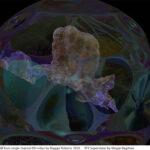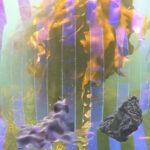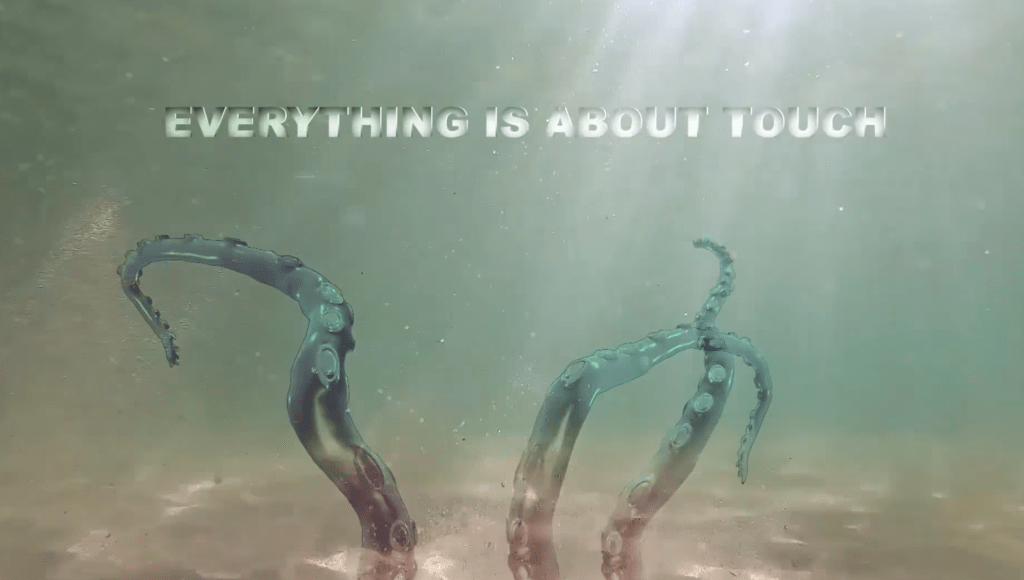This chapter forms part of an ongoing exploration of the artist-collective 0rphan Drift’s (0D) collaborative, experimental and multimedia work, which merges ecofeminist and technologically mediated aesthetics and narrative practices in an attempt to produce alternate visions of embodiment, perception and proprioception grounded in the ocean as an epiphenomenon of polymorphous fluid transmissions (Plant, 1998). The Common Octopus and its local environment – the kelp forests of the Cape Peninsula – are an important catalyst in 0D’s recent work, helping us to re-imagine the role of speculative imagination and non-human cognition as propositions for pedagogies as well as artistic practices that aim to combat the destructiveness of the Anthropoceneby concretizing a more hopeful more-than- human future. The particular focus of this chapter is a series of Becoming Octopus Meditations based on storytelling and art-making practices that have emerged from free-dives undertaken in the Peninsula’s underwater seascapes. These speculative meditations shift technological and pedagogical practices beyond colonial and patriarchal logics by developing perceptual and aesthetic languages that immerse viewers in the distributed intelligence, spatial awareness, chemo-tactile sensing, camouflaging abilities, curiosity, and evolutionary resilience of the Common Octopus. Here we explore the work as a response to the current ecological crisis – which is also a crisis of aesthetics, imagination and perception – with reference to Donna Haraway’s (2016) storytelling methodologies, Amanda Boetzkes (2015) concept of ecologicity and Vilém Flusser’s (2012) contention that what is needed in the information age is an octopus revolution in consciousness.
Author(s)
Delphi Carstens and Mer Maggie Roberts




